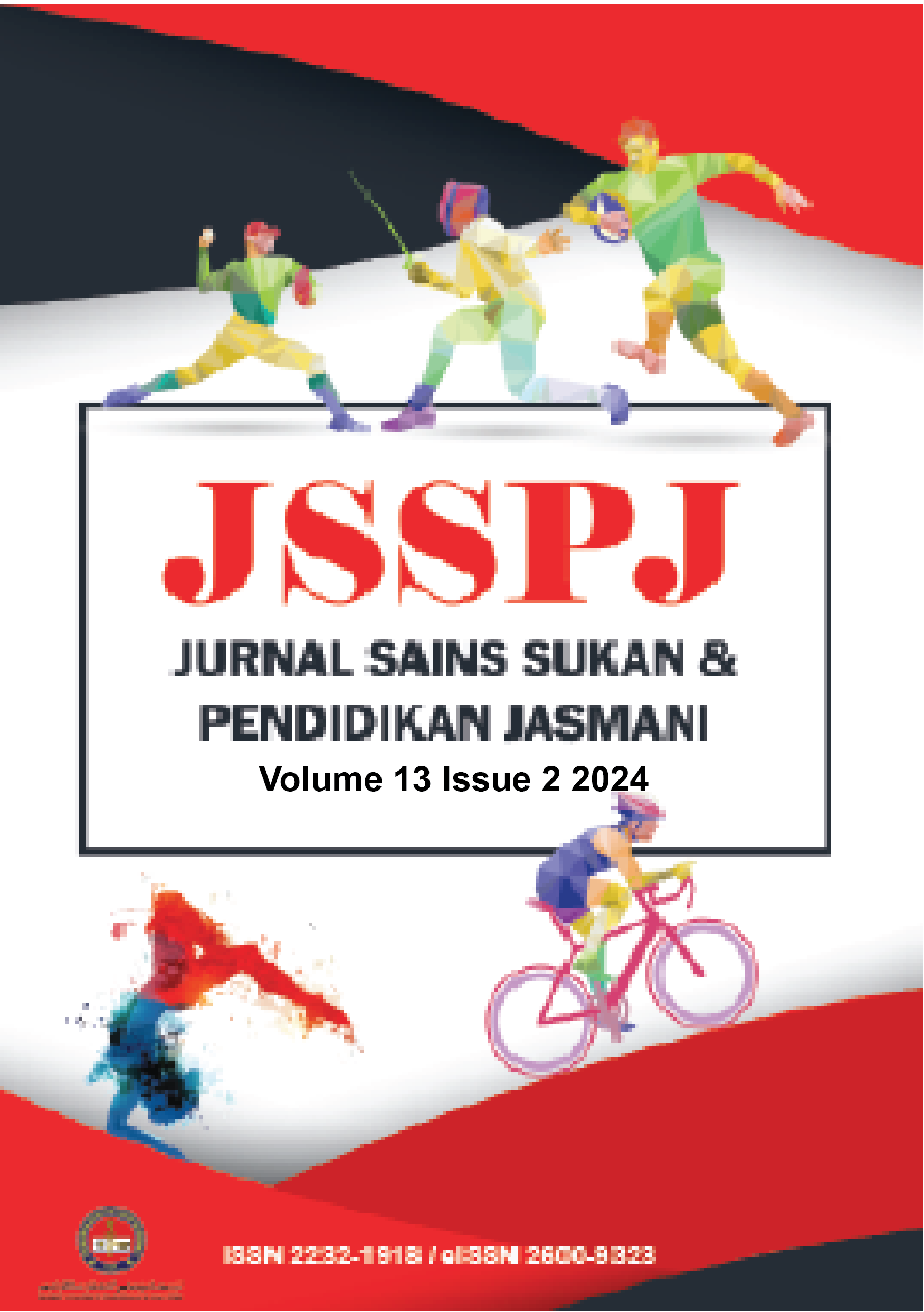The Preliminary Formulation of Zea Mays as Exercise Recovery Gel
DOI:
https://doi.org/10.37134/jsspj.vol13.2.5.2024Keywords:
recovery, zea mays, sweet corn, exercise, supplementAbstract
Recovery nutrition play an important role in body adaptation towards exercise and sports performance. Combination of different saccharides and amino acid content fasten recovery result which promotes exercise adaptation and prepared athletes’ body for next session of exercise. There are abundant of recovery supplement available but most of it was milk base products which could contribute to lactose intolerance negative effect among consumers. Therefore, Zea mays which is plant based is propose as an alternative food supplement for exercise recovery choices. Zea mays kernel was grind for the juice and homogenized with sugar, fructose, xanthan gum and pectin. The mixture been cook for 20 minutes using double boiler at 95°C. The gel sample then fill in the gel pack and keep at room temperature for shelve live assessment. Proximate analysis showed the presence of sucrose (20.5g/100g), fructose (9.2g/100g) and total carbohydrate is 51.5g/100g. Essential amino acids that presence is arginine (1.75%w/w), histidine (0.52%w/w), isoleucine (0.17%w/w), lysine (0.08%w/w), threonine (0.15%w/w) and valine (0.31%w/w). After 30 days at room temperature, the Zea mays gel showed same texture, colour, smell, and taste. Therefore, the preliminary formulation of Zea mays gel showed a possible innovation for local exercise recovery gel.
Downloads
References
Asmawi, M. Z., Seppo, L., Vapaatalo, H., Korpela, R. 2006. Hypolactasia & lactase intolerance among three ethnic groups in Malaysia. Indian J. Med. Res. 124(6), 697-704
Beelen, M., Burke, L. M., Gibala, M. J., Van Loon, J. C. 2010. Nutritional strategies to promote post-exercise recovery. Int. J. Sport Nutri and Exer. Metab. 20, 515-532.
Bolin, T. D., Davis, A. E., Seah, C. S., Chua, K. L., Yong, V., Kho, K. M., ... & Jacob, E. (1970). Lactose intolerance in Singapore. Gastroenterology, 59(1), 76-84.
Bongiovanni, T., Genovesi, F., Nemmer, M., Carling, C., Alberti, G., & Howatson, G. (2020). Nutritional interventions for reducing the signs and symptoms of exercise-induced muscle damage and accelerate recovery in athletes: current knowledge, practical application and future perspectives. European Journal of Applied Physiology, 120, 1965-1996.
Burke, L. M., Kiens, B., & Ivy, J. L. (2004). Carbohydrates and fat for training and recovery. Food, Nutrition and Sports Performance II, 24-49.
Bonilla, D. A., Pérez-Idárraga, A., Odriozola-Martínez, A., & Kreider, R. B. (2020). The 4R’s Framework of Nutritional Strategies for Post-Exercise Recovery: A Review with Emphasis on New Generation of Carbohydrates. International Journal of Environmental Research and Public Health, 18(1), 103.
Burke, L. Nutricion en el Deporte/Nutrition in Sport: Un Enfoque Práctico/a Practical Approach; Editorial Médica Panamericana S.A.: Madrid, Spain, 2010.
Densupsoontom, N., Jiranpiyo, P., Thamonsiri, N., Wongam, R. 2004. Lactose intolerance in Thai adults. J. Med. Assoc. Thai. 87(12), 1501-1505.
Ivy, J.L.; Ferguson-Stegall, L.M. Nutrient Timing. Am. J. Lifestyle Med. 2013, 8, 246–259.
Jentjens RL, Moseley L, Waring RH, et al. Oxidation of combined ingestion of glucose and fructose during exercise. J Appl Physiol. 2004;96:1277–84.
Jusoh, N., Ahmad, A., & Tengah, R. Y. (2019). Evaluation of nutritive values and consumer acceptance of sweet corn (Zea mays) juice as a recovery beverage for exercising people. Malays. J. Fundam. Appl. Sci, 15, 504-507.
McBrier, N. M., Vairo, G. L., Bagshaw, D., Lekan, J. M., Bordi, P. L., & Kris-Etherton, P. M. (2010). Cocoa-based protein and carbohydrate drink decreases perceived soreness after exhaustive aerobic exercise: a pragmatic preliminary analysis. The Journal of Strength & Conditioning Research, 24(8), 2203-2210.
Negro, M., Giardina, S., Marzani, B., Marzatico, F. 2008. Branch-chain amino acid supplementation does not enhance athletic performance but affects muscle recovery and the immune system. J. Sports Med. Phys. Fitness. 48 (3), 347-351
Pelly, F. E., Burkart, S. J. 2014. Dietary regimes of athletes competing at the Delhi 2010 Commonwealth Games. Int. J. Sport Nutr. Exerc. Metab. 24(1), 28-36.
Zoorob, R.; Parrish, M.-E.E.; O’Hara, H.; Kalliny, M. Sports Nutrition Needs. Prim. Care 2013, 40, 475–486.
Downloads
Published
Issue
Section
License
Copyright (c) 2024 Azimah Ahmad, Khairunizah Hazila Khalid

This work is licensed under a Creative Commons Attribution-NonCommercial-ShareAlike 4.0 International License.





